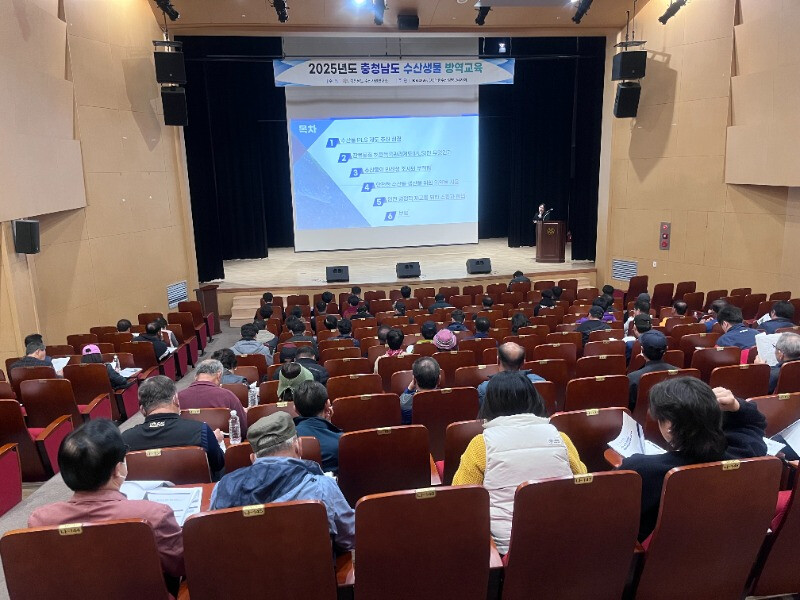
Chungcheongnam-do, South Korea – Chungcheongnam-do province is taking proactive steps to safeguard its aquaculture industry by empowering its stakeholders with essential knowledge and best practices in aquatic animal disease prevention. The Chungcheongnam-do Fisheries Resources Institute (CFRI) held a crucial 'Aquatic Animal Disease Prevention Education' session on April 3rd at the Seosan Culture Center, marking a significant effort to minimize the impact of potential outbreaks.
The mandatory training, stipulated by South Korea's 'Aquatic Animal Disease Control Act,' requires aquaculture operators holding registrations, permits, or licenses, along with fishing site owners and their staff, to complete at least six hours of instruction every two years. This legal framework underscores the national importance placed on maintaining the health and productivity of aquatic resources.
This year's program commenced with a three-hour in-person session, which saw active participation from industry professionals. The curriculum covered a range of vital topics, including the foundational principles of aquatic animal disease prevention, a comprehensive understanding of various aquatic animal diseases, and strategies for ensuring healthy aquaculture production. Recognizing the diverse aquaculture landscape of the province, CFRI has tailored the training to address local needs. A notable addition to this year's curriculum is a specific module on disinfection management protocols for whiteleg shrimp farms, a prominent aquaculture species in the region. This targeted approach reflects CFRI's commitment to providing relevant and practical knowledge to its stakeholders.
Mr. Choi Chang-sik, the head of CFRI's Fisheries Product Safety Center, emphasized the significance of the education program. "This training is instrumental in equipping our aquaculture professionals with the necessary skills and awareness to effectively prevent and respond to aquatic animal infectious diseases," he stated. "By enhancing their capabilities, we aim to ensure a stable and reliable supply of high-quality seafood for consumers."
Looking ahead, CFRI is scheduled to conduct an additional three hours of online education in August, providing flexibility and accessibility for participants to complete their mandatory training. This blended learning approach ensures comprehensive coverage of essential topics while accommodating the busy schedules of aquaculture professionals.
The initiative by CFRI highlights the growing emphasis on biosecurity measures within the aquaculture sector. Preventing disease outbreaks not only protects the livelihoods of fish farmers but also contributes to the overall health of the aquatic ecosystem and ensures consumer confidence in seafood safety. Through proactive education and robust surveillance programs, Chungcheongnam-do is demonstrating its commitment to fostering a sustainable and resilient aquaculture industry.
The CFRI further affirmed its dedication to ongoing disease prevention and management efforts. "Our institute will continue to strengthen our quarantine surveillance and disease control measures," Mr. Choi added. "We are committed to ensuring that only safe and healthy aquatic products are produced and distributed to the market." This multi-faceted approach, combining education with active monitoring and management, is crucial for maintaining the long-term health and economic viability of Chungcheongnam-do's aquaculture sector.
[Copyright (c) Global Economic Times. All Rights Reserved.]






























